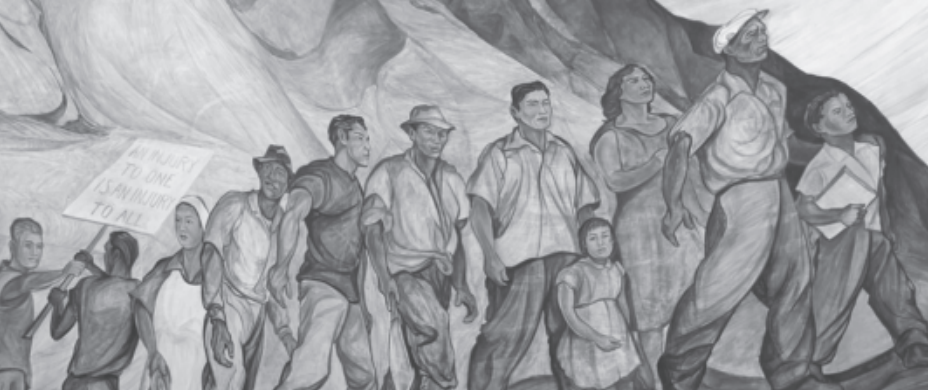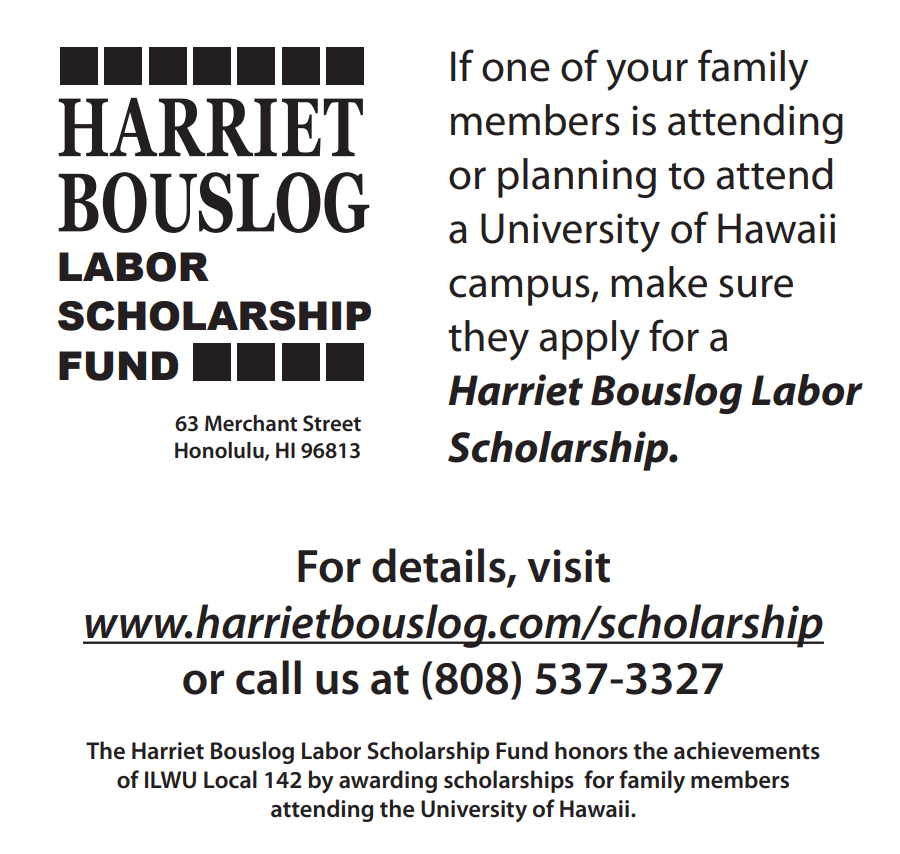Alma M. O. Trinidad, the eldest of five children, loved school but never thought she would go to college—let alone be a social work professor at Portland State University.
Both of Alma’s parents were employed by Del Monte Corporation. Alma’s father Pedro worked as a driver, a drip operator, and a luna. Alma’s mother Sionita worked in the fields as a pineapple picker. Her maternal and paternal grandfathers also worked for Del Monte on Molokai.
This is Alma’s account of how the ILWU helped in their struggles as Filipino immigrants:
“When I was 13 years old, my parents worked for Del Monte Corporation on Molokai and faced the closure of their plantation. I recall how devastated my parents and other family friends were. The work they did at Del Monte was the only type of work they knew since immigrating to Hawaii. I remember the long, stressful conversations my parents had. Although at the time I could not grasp the impact of Del Monte’s closure on the community, my parents would talk about how the union was instrumental in advocating for the workers and making sure that they received a solid severance package. Additionally, I learned that the union helped workers to transfer to another Del Monte location. With the union’s efforts, my parents were able to relocate to Del Monte Kunia in the late 1980s.
“Del Monte Kunia closed its business in 2008, and again my parents and family friends were impacted by the shutdown. By then, I had become a social worker and had gone back to school for my doctorate in social welfare. The union once again was instrumental in making sure workers’ rights were not violated during the closure, and helped workers maintain affordable housing. At this point, because I kept in touch with the union’s social worker, I knew about some of the issues. The union continues to be a vital organization for promoting justice, especially in the agriculture and service industries.”
Alma received a Harriet Bouslog Labor Scholarship in1993 that helped her to pursue a higher education. She says, “If it weren’t for this scholarship fund, I would not have been able to successfully complete my undergraduate degree in social work. I had little or no financial resources. Coming from a low income background, attending a four year university immediately after graduating from high school was almost impossible.
“The research I did when I was a high school graduate is now a part of my memories. The research was the start of a lifelong journey to learn more about the union that took care of my parents and others in the community who worked in the pineapple industry. Since earning this scholarship, my quest to learn about social justice and social change has been strong. I became a social worker to advocate for the rights of those less fortunate, including communities like immigrants and refugees. I’ve come to appreciate the role of labor unions throughout history, including in the civil rights movement. In light of capitalism and neo-liberal policies, working conditions have worsened. The rights of workers continue to be undermined, and companies can easily take advantage of individual workers. I believe labor unions are needed more than ever and must work with other community-based, non-profit organizations to address the needs of the working class.
“This scholarship and union have instilled in me an appreciation of the collective spirit. Now that I am a professor, I belong to a union. I find my union to be my watchdog with regard to my rights as a worker. I am no different than my parents who worked in the pineapple industry. Although I am a professional, I believe the union plays an important role in my life. All workers need a way to address issues related to their work and the workplace, as well as assure fair treatment and good working conditions so they can thrive.”
Alma’s message to ILWU members is: “Please continue to share your personal stories with your family, children and community. The ILWU has a strong legacy of community and social justice in Hawaii. These stories need to be preserved and passed on to the next generation so strong values will not be forgotten. I am extremely thankful for the Bouslog scholarship fund and the ILWU. I attempt to carry on the legacy of Harriet Bouslog and her work with the ILWU in my own work as a Pinay scholar. Maraming salamatpo, agyamanak, mahalo nui loa, kopjai, and my deepest gratitude!”


